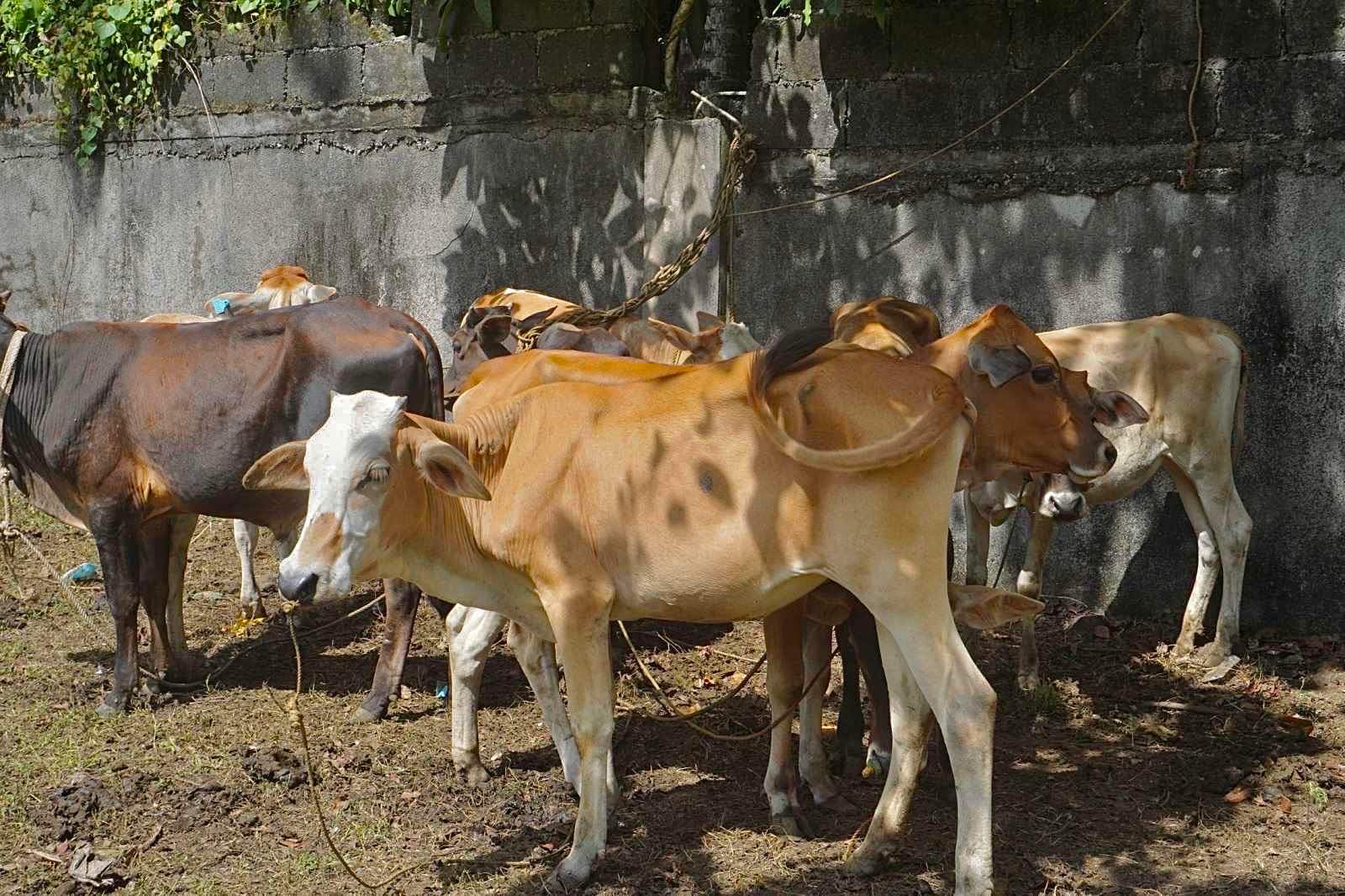
FILE PHOTO of Qurban activity of the Tulong Alay sa Bangsamorong Nangangailangan (TABANG) during the Eid al-Adha in 2023. (Photo courtesy of TABANG)
Eid al-Adha is the second-most important event in the Islamic calendar. During the three-day celebrations, Muslim families gather together to honor Prophet Ibrahim’s (Alayhis Salam) devotion to Allah with gifts and feasting.
Also known as “the Festival of Sacrifice,” Muslims around the world will celebrate it on a date which falls on the 10th day of Dhul Hijjah, the 12th and last month of the Muslim lunar calendar.
The Eid al-Adha occasion also marks the end of the Hajj pilgrimage to Makkah, Kingdom of Saudi Arabia, one of the five pillars of Islam. All able-bodied Muslims must undertake Hajj at least once in their lifetime.
The pilgrimage is believed to cleanse the soul of sins and instill a sense of equality, sisterhood, and brotherhood.
Approximately 2.5 million pilgrims from around the world flock annually to the cities of Makkah and Madina in the Kingdom of Saudi Arabia for the ritual.
Brief History of Eid al-Adha
According to the Quran, Prophet Ibrahim Alayhis Salam – known as Prophet Abraham in the Bible – and his wife Hagar had a son, Prophet Ismael Alayhis Salam (Peace be upon him) after many years of praying to be blessed with a child.
However, the family was tested by Allah (swt) who commanded him to sacrifice his first-born son as an act of devotion. Ibrahim and Hagar traveled to Makkah to undertake the sacrifice, following a route now traversed on the Hajj pilgrimage.
But at the last minute, Allah (swt) told Prophet Ibrahim to stay his hand and provided him with a lamb or a sheep to sacrifice instead.
It is important to note that on Eid al-Adha, the animal sacrifice is not made as an atonement for sin, and it is said that the blood and meat of the sacrifice don’t even reach Allah.
The sacrifice has more to do with generosity, which is why a third of it is given as charity in the form of food. This willingness to give up some of one’s possessions for those in need is said to please Allah and show one’s devotion to Him.
How is it Celebrated?
During Eid al-Adha, Muslims traditionally honor Ibrahim’s devotion to God by sacrificing a sheep, goat, cow, or camel in their homes or other designated sacrifice spots.
To ensure everyone benefits, each person contributes a portion to the sacrifice. Since a goat equals one portion, a large family would opt for a cow or camel instead, as both animals equal seven portions respectively.
Families then divide up the meat to use during the feast with their family and friends; to distribute to close ones not present at the gathering and neighbors; and lastly, to the poor. Families who have not made a sacrifice will often purchase halal meat for their meals and donate money to charity instead.
The Eid al-Adha celebration is the day that Muslims across the globe make sure everyone has food on their table. At the hour of the sacrifice, the animal is faced towards Makkah and either the head of the family or another appointed person takes a sharp knife, says bismillah (in the name of God), and draws the blade in a quick motion across the animal’s throat.
It is of the utmost importance that the animal feels no suffering besides the initial pain. The celebration begins with a special prayer, ‘Salat al-Eid,’ followed by a sermon called a Khutbah. Traditionally, this is followed by the sacrifice.
The rest of the day is devoted to visiting the houses of friends and family. Worshippers exchange the traditional Arabic greeting, ‘Eid Mubarak’ (‘Have a blessed Eid’), and exchange gifts.
In the Bangsamoro region, the Bangsamoro Darul-Ifta’ (BDI) has announced that Eid al-Adha prayers will be held on Sunday, June 16, 2024, at 6:00 in the morning. This corresponds to the 10th day of Dhul-Hijjah in the Islamic calendar (1445 H).
Bangsamoro Mufti Abdulrauf Guialani said Eid al-Adha celebrations will officially commence following the Eid Khutbah (sermon) and continue until the Ayyam Al-Tashreeq (or the period of sacrificing animals, and the meat is typically distributed among family, friends, and the less fortunate), which will begin on June 17 and conclude with the Maghrib (sunset) call to prayer on June 19.
All recognized Eid prayer locations are encouraged to follow this guideline to promote unity and solidarity within the Bangsamoro community. (Kasan Usop Jr./BIO)







